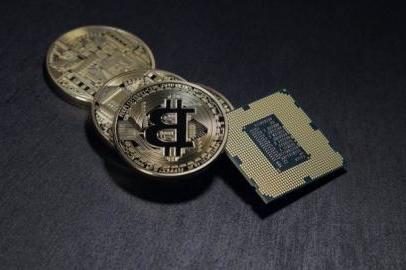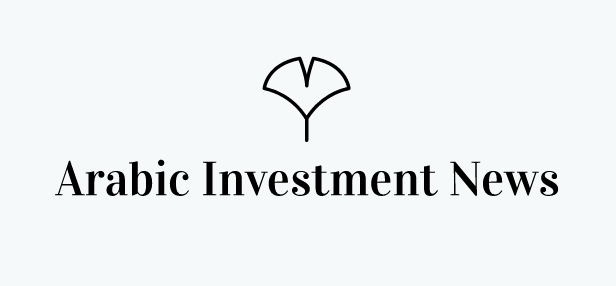Is cryptocurrency in Islam halal or not halal?
In recent years, the attentions of many researchers and specialists in Islamic finance have been focused on the cryptocurrency or Arab Investment. And especially if this form of virtual currency is consistent with the Muslim religion.

What is cryptocurrency?
The XXI century has seen an adaptation of the currency through technological advances but also because of the various economic problems observed. Thus the concept of crypto currency or cryptocurrencies has emerged and has taken a large place in the world of finance.
Crypto money is a currency that can also be called currency just like the euro or the dollar. But unlike those mentioned before, it is digital and decentralized. This means that a crypto currency is totally virtual. Thus, it uses cryptographic algorithms and also a protocol called blockchain which allows to ensure both the reliability but also the traceability of transactions.
To store these crypto-currencies, it will then be necessary to have what is called an electronic wallet which will be protected by a secret code belonging only to the owner. Thus, to have access to these cryptos, it will be necessary to pass by platforms of exchanges which will be used to buy or to resell the cryptos on line. In this case, it is more precisely trading.
Created in 2009, the most famous and valuable cryptocurrency is bitcoin. It can be considered the forerunner of all other cryptocurrencies. Many online platforms and services around the world already accept payment via this currency.
This form of currency becomes very usable because it can be used by everyone. There is no longer a specific currency according to the country, we now speak of the same currency regardless of the country where we are: Africa, Europe or America. Its accessibility depends only on the possibility for a third party to create an account via the Internet.
Obviously, there are several ways to obtain crypto: the most highlighted are trading or mining. The mining consists in using a computer, more precisely its processor but especially the related graph to produce crypto currency. Indeed, the computer takes care of all the work or will take care of the job.
Cryptocurrency and Islam
All the actions around the cryptocurrency have been divided into two categories by Islam. On the one hand, we have everything that is licit or Halal and on the other hand, everything that is forbidden or illicit that is called Haram. In general, these categories are most often used when talking about food. However, these terms are also used to refer to other actions such as gambling. Islam defines as money anything that has intrinsic value and whose contractual parties are satisfied like gold or silver. Thus, whether cryptocurrencies fall into this category becomes a real issue of perspective.
It is quite obvious to recall that Islamic finance prohibits speculation and interest. Islamic finance is the set of transactions and financial products that respect the Muslim law or muslim law that is to say that prohibits interest, speculation, investment in illicit sectors such as alcohol or tobacco for example and gambling.
Trading thus becomes a matter of religion. Obviously, it will be necessary to trade without the various sins that normal trading causes to man. Islamic trading is different from other known trading methods on the market. In order to do so, the trader will have to choose a broker for halal trading (the most famous is eToro) in order not to earn interest, not to bet on high-risk operations since there will have to be a sharing between the profits and the risks. You will also have to deposit a minimum of $1000 and finally contact the customer service to inform them that the deposit of funds as well as the trader will be in Islam.
Arabic cryptocurrency and its peculiarity
To date, several cryptocurrencies exist around the world. The most famous currencies or currencies nowadays are bitcoin and ethereum. Added to these are Cardano, Ripple, Litecoin and many more. However, there has only been one Arabic crypto launched so far and entering the blockchain. Indeed, this crypto was launched on March 31, 2021. Bearing the name of United Emirate Coin or UEC, it has an open source based on Ethereum. However, it only has a total supply of 20 million which seems to predict an increase in the value of the price due to the rarity of this crypto.
In addition to the UEC, there is also an open source project based on a hybrid blockchain called Stellar. It has just been approved by Shariyah Review Bureau, a consulting firm specializing in Islamic finance and licensed by the Central Bank of Bahrain.
Bitcoin is a cryptocurrency with intrinsic value in that its value is dictated by demand and supply (similar to the financial markets and the value of currencies on the stock market). It can already be used as a currency, it is mined and it is scarce.
Future of the Arab cryptocurrency
Some countries have accepted other rules since each country has its own participation of the Quranic law. There may be equivocations in many countries as the authorities simply do not understand this new technology.
According to scholars finance for example, Bitcoin is "suitable for Islam due to three of its characteristics: the transparency in exchanges that blockchain allows, the financial inclusion of the unbanked and the fact that it is based on a real economy."
Yet according to Egyptian Shawki Allam, Bitcoin is illicit in the eyes of the Koran. He says: "Bitcoin can harm the economic and social security of the country. This virtual currency presents the risk of bringing down the monetary and financial system that currently governs societies."
For countries that are not in line with cryptocurrencies, we can mention: Kuwait, Lebanon, Bahrain and Qatar. Thus:
- Kuwait does not recognize crypto-currencies for official business transactions and prohibits the banking sector and state-controlled companies from trading them.
- In Lebanon, the Bank of Lebanon issued warnings about the dangers of crypto-currencies, then announced last year that it would launch its own.
- Bahrain and Qatar prohibit their citizens from engaging in any type of activity involving crypto-currencies locally, but allow them to do so outside their borders. Qatar is holding its first Blockchain conference in October.
Generally, different countries are opposed to the use of cryptocurrency. Nevertheless, it turns out that improvements in this area seems to be expanding more and more. After seeing the usefulness of blockchain, many Arab states have invested in the creation of specialized departments. Just as many states do not want the crypto to be used in their countries, others on the contrary see it as an opportunity not to be missed. This is the case of Tunisia, which is one of the main pioneers of the implementation of blockchain technology. We can also mention Saudi Arabia, whose government publicly displays its ambition to take part in the project and even to become one of the world leaders in blockchain.
So it can be said that more and more Arab countries are taking part in the globalization of cryptocurrency. Muslims Invest in cryptocurrencies. The digital invades these countries long protagonists of the party against this new technology.
Halal Certification and Stellar
Have you ever heard of Stellar? Certainly if you are interested in Islamic finance. It is indeed an open source project that works on a hybrid blockchain. The good thing about this kind of project is the fact that it promotes easy payment and value transport between assets. Last July 17, the project advanced that it has obtained the approval of Shariyah Revie Bureau. The latter is a consulting firm, which works mainly in Islamic finance, and is authorized to work by the Central Bank of Bahrain. Thanks to this approval, the cryptocurrency has seen its price reduced by 32%.
It is also important to remember that not all cryptocurrencies are alike. Each of them has its own particularity. The academic said that Bitcoin is compatible with Islam because of three of its characteristics: the transparency in the exchanges that are allowed by the blockchain, the financial inclusion of people who do not have bank accounts, but also because it is based on a real economy.
